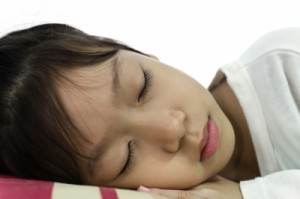
Understanding bed wetting is the best hope for seeing dry nights in your child’s future. For parents, it’s easy to get frustrated with a child’s bedwetting, particularly after the child reaches a certain age.
It’s important to understand that bed wetting is a natural part of growing up and many children learn to control their bladders before the age of 8. Yet for plenty of children, it may take a little longer.
Some parents become desperate in their quest to find wetting cures, but rest assured, you are not alone!
Common Bed Wetting Myths
Children are wetting the bed to get attention: This is a common myth among parents who believe children are wetting the bed because they like the added attention. The truth is most of the attention involved in wetting the bed is negative, and that attention could leave lasting psychological impacts on a child and compound the problem. It could also render any potential cures meaningless.
Bed wetting after the age of 7 is abnormal: Plenty of parents find themselves seeking bed wetting cures, even when their child is 7 or 8 years old. At this phase, the best treatment is patience and positive reinforcement for dry nights. After 8 years old, parent may want to consider more aggressive treatment methods.
No fluids after 4pm: Limiting fluids can actually make the problem worse – and even painful – and it is not viewed as one of the many viable and successful cures available. If a child is dehydrated, urine will become concentrated, which could lead to irritability in the bladder.
Explaining Bed Wetting
Wetting the bed is best defined as involuntary urination during sleep – it is very rarely a sign of a defect in the bladder or a problem with the urinary system.
Most children are primary bed wetters, meaning they have been wetting the bed regularly through the age of 5 to 8 years old.
Some children, however, experience secondary bed wetting. This occurs when a child has a resurgence of wetting the bed, even after he or she has been having dry nights for six months or more.
The primary difference is that secondary bed wetting has been connected to traumatic or high stress events, including moving, starting a new school, divorce or a parent or abuse.
What Causes Bed Wetting?
Most children wetting the bed do so because they do not yet respond or recognize the feeling of a full bladder that triggers adults to wake during the night.
A lot of children also produce less vasopressin, a hormone that helps the kidneys produce less urine during sleep. Most children learn to control their bladders and bed wetting stops completely over time, but this happens at different ages for different children. Other common causes that lead parents to search for bedwetting cures include:
- Slower Maturation of the Bladder
- Deep Sleep
- Smaller Functioning Bladder
- Constipation
No matter the reason for your child’s bed wetting, it’s important to let him or her know that it is a normal thing. Parents just like you all over the world are in search of bedwetting cures every day!
While it is frustrating for parents to have to clean up a wet bed, if a child is shamed or scolded it will create self-esteem issues. Wetting the bed can also create social awkwardness, with children being afraid to attend slumber parties.
Don’t allow bed wetting to become a traumatic experience for your kid. The best bed wetting cures begin with patience and understanding. There are also some products that will make life a little easier during this period, such as mattress pads, bed wetting diapers and waterproof underwear.
